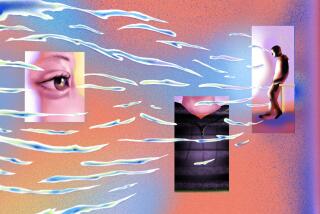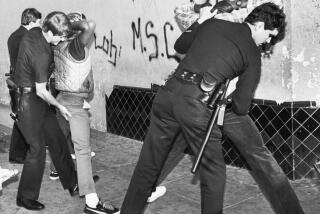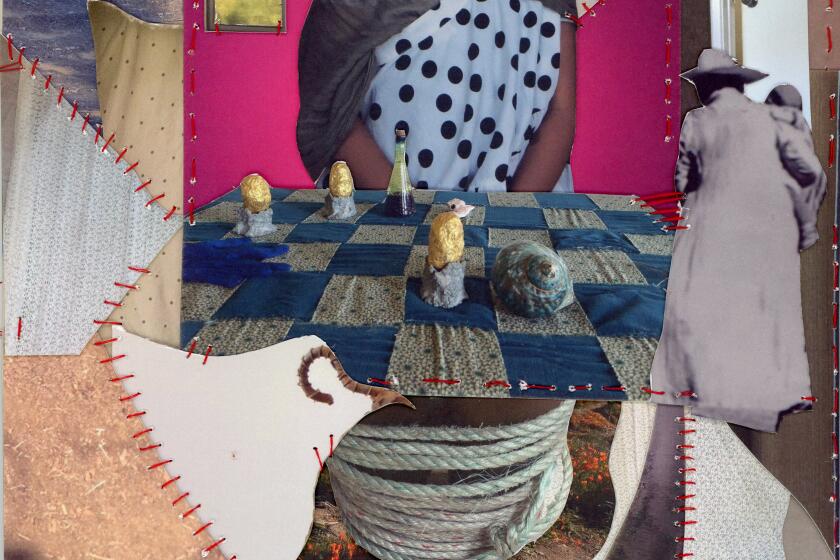<b>My L.A.</b>: City of Hope
Showers! a counselor commanded. All the boys around me began to strip until they stood naked at the edge of the institutions showers. Lets go! a second counselor shouted. One! Two!
I froze. Barely seven years old, lost among rows of beds in an immense dormitory, I was too shy to strip and too frightened to protest. Taken from my mother hours earlier and left at MacLaren Hall-an asylum-like childrens facility in El Monte, fenced with barbed wire and staffed by armed guards-I had been weighed, handed a uniform of jeans and a white T-shirt and forced to surrender all I had. No one had asked my name. No one had mentioned my mother, if she knew where I was or when she would come for me.
Three! The first counselor led the shivering boys into the showers as the second gripped my arm. Pushing me down several hallways, we stumbled through a basement door, where I spotted the dark room. The mans grip tightened. He threw me inside, slammed and locked the door.
It is understandable to wonder if, given the chance, I would change the past. I was the son of a young mother-a girl named Hope-who was born into unforgiving poverty in the shadow of Pikes Peak, outside Colorado Springs. She spent her childhood drifting between state homes and her mothers bungalow. When she turned 16, she met a man five years older and married him against her mothers wishes. After the wedding, they set out to discover the American West from behind the wheel of a beat-up Chevrolet.
My father loved my mother with a selfish intensity. He abused his first wife, abandoned their three sons and spent time in prison. With my mother, he would repeat this pattern, except he would leave only one son-a blond boy who resembled him more than her-and when their meager savings ran out, he would take my mother with him to prison for writing bad checks from Bakersfield to Los Angeles.
With two weeks to report to the California Institution for Women at Frontera, Hope boarded a bus and delivered me to my grandmother in Chicago. She told me she loved me, promised she would return, then kissed my forehead and vanished.
Two years later, Hope divorced my father and called her mother to demand me back. My grandmother protested, but a month later, I was on a plane bound for Los Angeles. I was not yet six years old.
My mother wanted me, but she knew little about raising a young boy. Twenty-three and educated to the 10th grade, she enrolled in a beauty school in North Hollywood and found an apartment close enough to Lankershim Elementary for me to walk. She toted me everywhere, sat me on barstools and took me to racetracks. A beautiful woman with a slender form and a delicate face, she was prankish and impulsive, even a little vain. She loved me more than she could care for me. Still, I never intended to let her go.
Nightmares can take time. A man she dated whipped me with a lamp cord. She threw him out, but weeks later, he returned and raped her in front of me. Shortly after, she lost her job and the small chance it offered. Welfare checks and food stamps were never enough. In a string of apartments and evictions, landlords cut the electricity and then the water. Two years after I arrived in Los Angeles, we were living in a flophouse, digging food from trash bins.
Withdrawing into fear and delusion, my mother spoke to voices only she could hear. She imagined men hunting for her boy, ready to steal him. In the depths of her mind, she tried to protect me. She fought, begged and negotiated, appeasing an invisible threat.
In the dark of night, Id listen as she argued with her imagination. I never rose from my bed to tell her that she and I were alone, to wake her from the reverie. Instead, I waited, and I prepared. You have to be ready, she warned. I love you, but theyre coming. And they will take you.
Then on a warm day in February, as I walked Lankershims empty expanse, a sheriffs deputy pulled alongside, asked if I was Andy and loaded me up. With me in the backseat, the car approached the motel, where my mother was arguing outside with a well-dressed social worker. When the deputy leaped to intervene, I dashed to my mother.
Barefoot and wearing a bra, she clung to me, roaring. Yet afraid of the voices and my mothers fear, I disentangled from her arms. The social worker ushered me to her car, then sped me away as the deputy pinned my mother to the sidewalk.
I spent several months at MacLaren Hall before staff noticed I had stopped talking. Eventually, I found myself in the hands of a different social worker, who drove me to a foster home and promised to retrieve me in a few weeks. She never returned.
More a tenant than a child, I stayed in that home for 11 years. I clung to my mothers memory, the fractured world we shared and the fraught love she had given me. I did poorly in school, my quiet grief contributing to test scores that showed below-average intelligence.
Then an extraordinary act of kindness came from a fifth-grade teacher. Young and attractive, hip by elementary-school standards, she never knew she reminded me of the mother I had lost. She believed unflinchingly in my potential and insisted that I be retested. Soon, I found myself waiting at her classroom steps each morning.
I learned good things could still lie ahead. Senior year in high school, I applied to a slew of colleges that rarely get applications from foster children and was accepted by Wesleyan University on a full scholarship. Harvard Law and a Fulbright Scholarship followed.
I returned to Los Angeles, where I took a position as junior counsel. After a while, I found myself seeking more meaningful litigation and left for nonprofit work. I began working on one of our countrys most hotly contested civil-rights lawsuits-Wyatt v. Stickney, which involved the rights of people living in Alabama psychiatric facilities. The dispute really hadnt focused on the rights of children in state care, and since I came with little experience, I was assigned to investigate the Eufaula Adolescent Center, the states largest institution for children.
Most of Eufaulas kids had drifted through a succession of foster homes or juvenile-justice camps. Desperately poor and isolated from their families, they received more punishment than care. Staff maintained a basement corridor, as well as a line of cells in the back of a warehouse, where children were stuck for weeks. The seclusion had already contributed to the attempted suicide of one boy and, weeks later, the actual suicide of his best friend. When one childs testimony brought widespread attention to Eufaula, a federal-court victory finally closed the facility.
In Los Angeles, I went on to represent impoverished children in the county that raised me. I became executive director of the Alliance for Childrens Rights, working to streamline foster kids adoptions, improve their access to social workers and better the quality of their health care.
I published Hopes Boy, a memoir of life with my mother, and I accepted a position as director of the Child Welfare Initiative, seeking to further enhance the lives of at-risk children.
But Eufaula stayed with me, and about three years ago, I began going back to Alabama to search for children I once knew. Nearly 12 years since I had left, I discovered young adults, some of whom had found their way back to their parents but most whose lives remain forever scarred. One has a double-wide trailer, a steady girlfriend and four daughters, while others live in garages, cramped apartments or the backwoods that snake off Alabamas interstates.
The star witness of the Eufaula case, now 25, was sentenced to prison for using a BB gun to steal change from a laundry. He will be 42 when he is released. Another boy became hooked on crack and committed murder in an attempted robbery. Though he had spent the entirety of his childhood in psychiatric care, he was tried as a competent adult. He received life without the possibility of parole.
For these kids and others who have lived in foster care, days and nights pass less easily than they do for most. They have few friends, preferring to be alone, and they avoid authority whenever possible. They talk of empty childhoods, of people who failed them. Yet nearly all also speak of the parents from whom they were ripped.
My friends know about the loss of my mother, my time at MacLaren Hall and my empty years in foster care. They seem unable to imagine that, with my pressed suits and résumé of prestigious schools, I actually have more in common with these kids in Alabama than I do with them. They wonder why I go back.
Yet I find comfort in the trips. Though MacLaren Hall closed six years ago, part of me remains locked behind its gates. Regardless of whatever luck and work bring me, the children of Eufaula will always be familiar.
My visits tend to my own memories of a childhood lost to fear and isolation. Yet more than anything, the journeys remind me of the love of my mother, the one who tried her best but failed, who will always be that beautiful young woman who dared to want me back, who loved her boy and taught him to remember it forever. The question of whether I would change any of it stopped mattering a long time ago.
Andrew Bridge chronicles his years in foster care in Hopes Boy, which spent six weeks on the New York Times Bestseller List.
More to Read
Sign up for our L.A. Times Plants newsletter
At the start of each month, get a roundup of upcoming plant-related activities and events in Southern California, along with links to tips and articles you may have missed.
You may occasionally receive promotional content from the Los Angeles Times.






